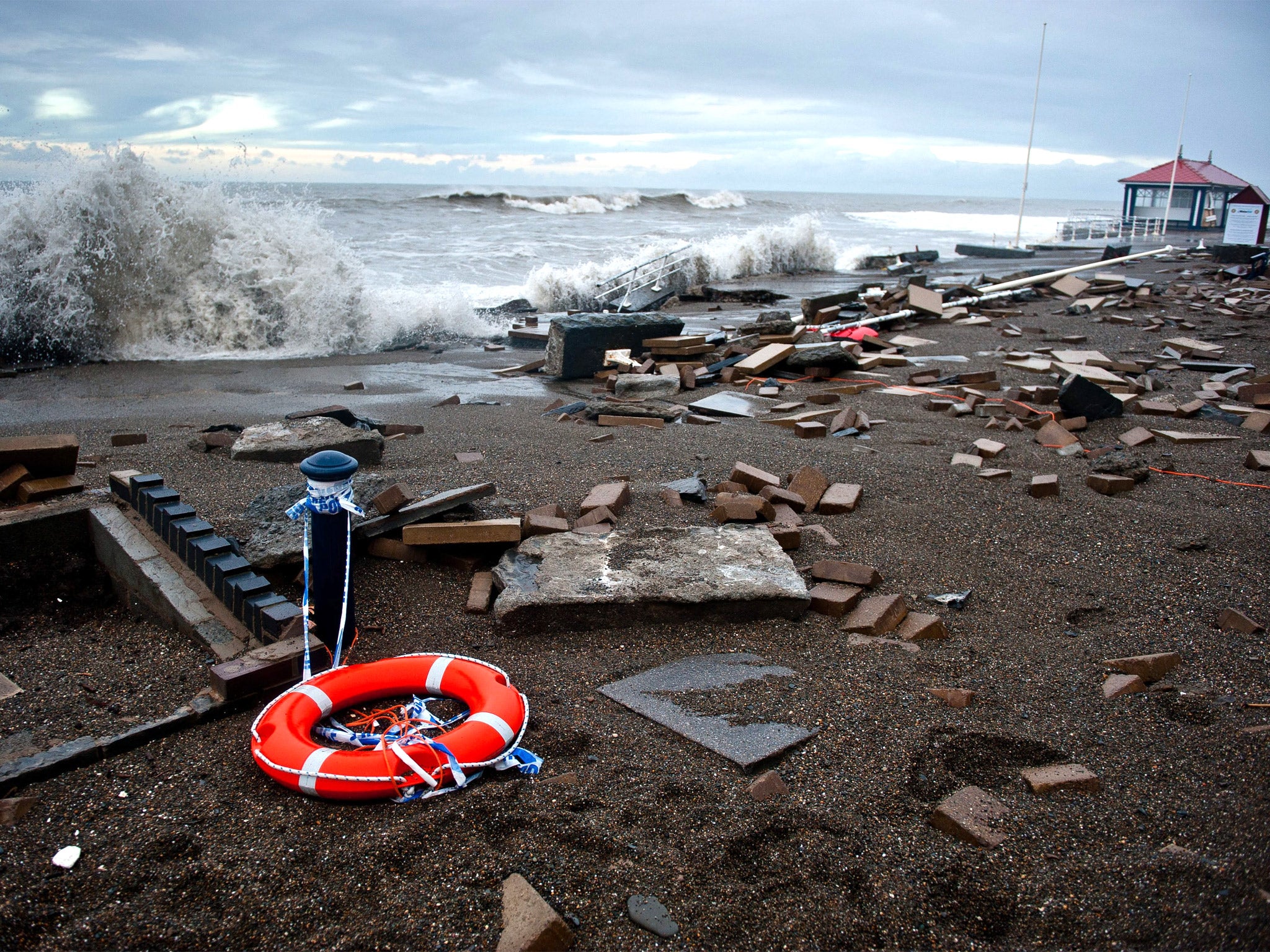Dylan Thomas: When weather howls
The storms lashing the Welsh Coast have brought to life the most savage verse and prose of Dylan Thomas. On the trail of the great poet, Boyd Tonkin finds himself swept away

Your support helps us to tell the story
From reproductive rights to climate change to Big Tech, The Independent is on the ground when the story is developing. Whether it's investigating the financials of Elon Musk's pro-Trump PAC or producing our latest documentary, 'The A Word', which shines a light on the American women fighting for reproductive rights, we know how important it is to parse out the facts from the messaging.
At such a critical moment in US history, we need reporters on the ground. Your donation allows us to keep sending journalists to speak to both sides of the story.
The Independent is trusted by Americans across the entire political spectrum. And unlike many other quality news outlets, we choose not to lock Americans out of our reporting and analysis with paywalls. We believe quality journalism should be available to everyone, paid for by those who can afford it.
Your support makes all the difference.My umbrella lasted less than a minute on the Gower Peninsula this weekend. Pathetic, I know. Why couldn't I have opted for a snug hood like the rest of the hardy handful who ventured out to brave the buffeting gales and lashing rains that blew into the Welsh coasts yet again?
At Caswell Bay, in calmer times a haven for surfers and picnickers, the seaside café had been smashed by the worst storms the owner could ever remember. On the cliffs above the three-mile sweep of Rhossili beach, directly exposed to the Atlantic, the wind slapped my face every which way. Down on the sands the wreck of the Helvetia, lost in a storm in 1887, poked through the surface: a jagged reminder of what such weather once regularly did to shipping around these shores. Impervious, the sheep munched the close-cropped turf. Out to sea, and cut off by high tides, the rocks of Worm's Head recall the Vikings' word for a dragon. The dragon has been roaring, ferociously, for a fortnight now.
A couple of weeks earlier, just before Christmas, I had visited Aberystwyth on another wild weekend. Come the new year the dragon returned to Wales, angrier than before. The pictures of Aberystwyth's Victorian promenade, its stones and slabs ripped up by the waves and scattered over the seafront, look as if some giant toddler has exploded in an uncontrollable tantrum. They brought back memories of driving down the coast between Colombo and Galle a couple of years after the Boxing Day tsunami had struck Sri Lanka. Even at that date, with reconstruction well under way, you would still come across blasted villages that mimicked the aftermath of a Second World War artillery battle. Seized and shattered by the sea, Aberystwyth almost resembles that.
I had come to the coasts of Ceredigion and Gower on the trail of Dylan Thomas, whose centenary falls this year. Welsh weather – mostly savage, occasionally serene – flows through the writer's verse and prose, always the counterpoint to storms in the heart. For Thomas, even an October wind "with fists of turnips punishes the land". "Fists of turnips" is marvellous but, on the Gower at this new year, the wind had swapped root vegetables for snooker balls. Or that is what it felt like. A couple of Thomas's stories, such as the wistful "Who do you wish was with us?", depict trips to Rhossili with his friends on golden days. But even in sunshine the young scamps get caught out by the tides.
You might say that only cossetted suburbanites – of the sort that carry umbrellas into the teeth of a gale – can develop a taste for squalls and tempests. As the past two weeks have shown, even now and even here they can – with a flick of a dragon's tail or the lurch of a wayward jet stream – ruin homes, destroy livelihoods, strand communities and, at the worst, snatch lives.
Thomas asked: "Shall gods be said to thump the clouds when clouds are cursed by thunder, Be said to weep when weather howls?" Well, the weather has howled and howled. But only its human victims weep. In one poem, Thomas imagines his writing, and indeed all Wales, as an ark lapped by stormy seas, with "the haystacked hollow farms in a throng of waters". That "throng of waters" has made the whole of Britain feel like an ark.
However the climate-change wind blows, it might prove to be a salutary sensation. Arks will always need upkeep, vigilance and repair – whichever weather-god assails them.
Join our commenting forum
Join thought-provoking conversations, follow other Independent readers and see their replies
Comments